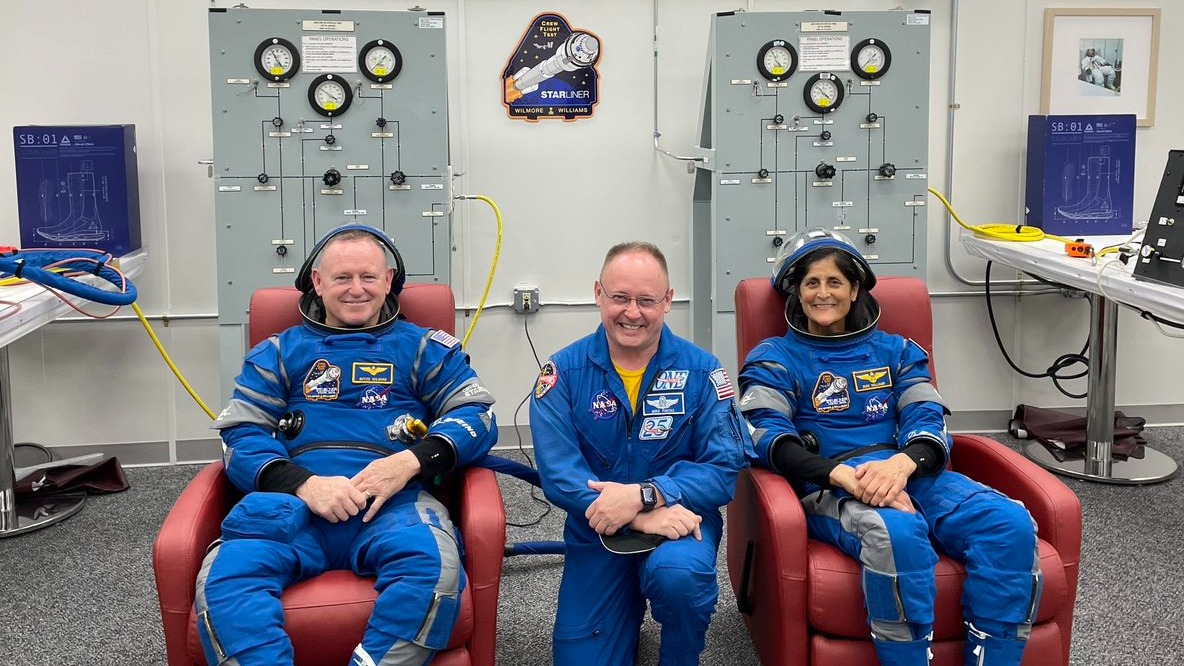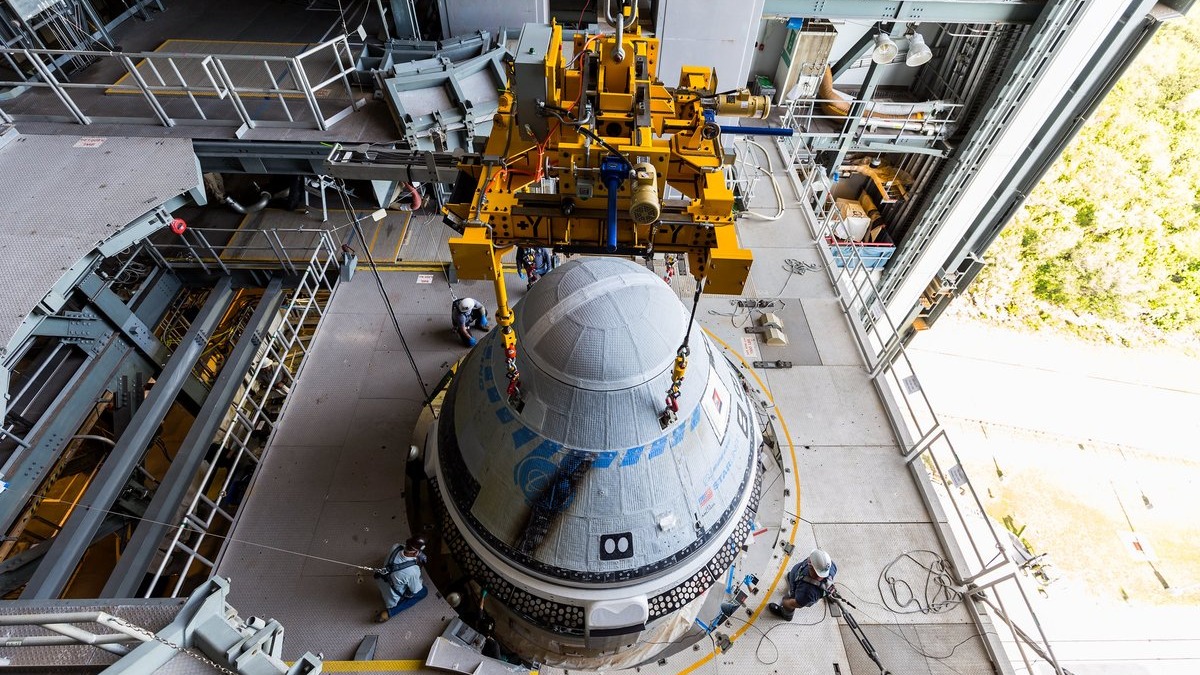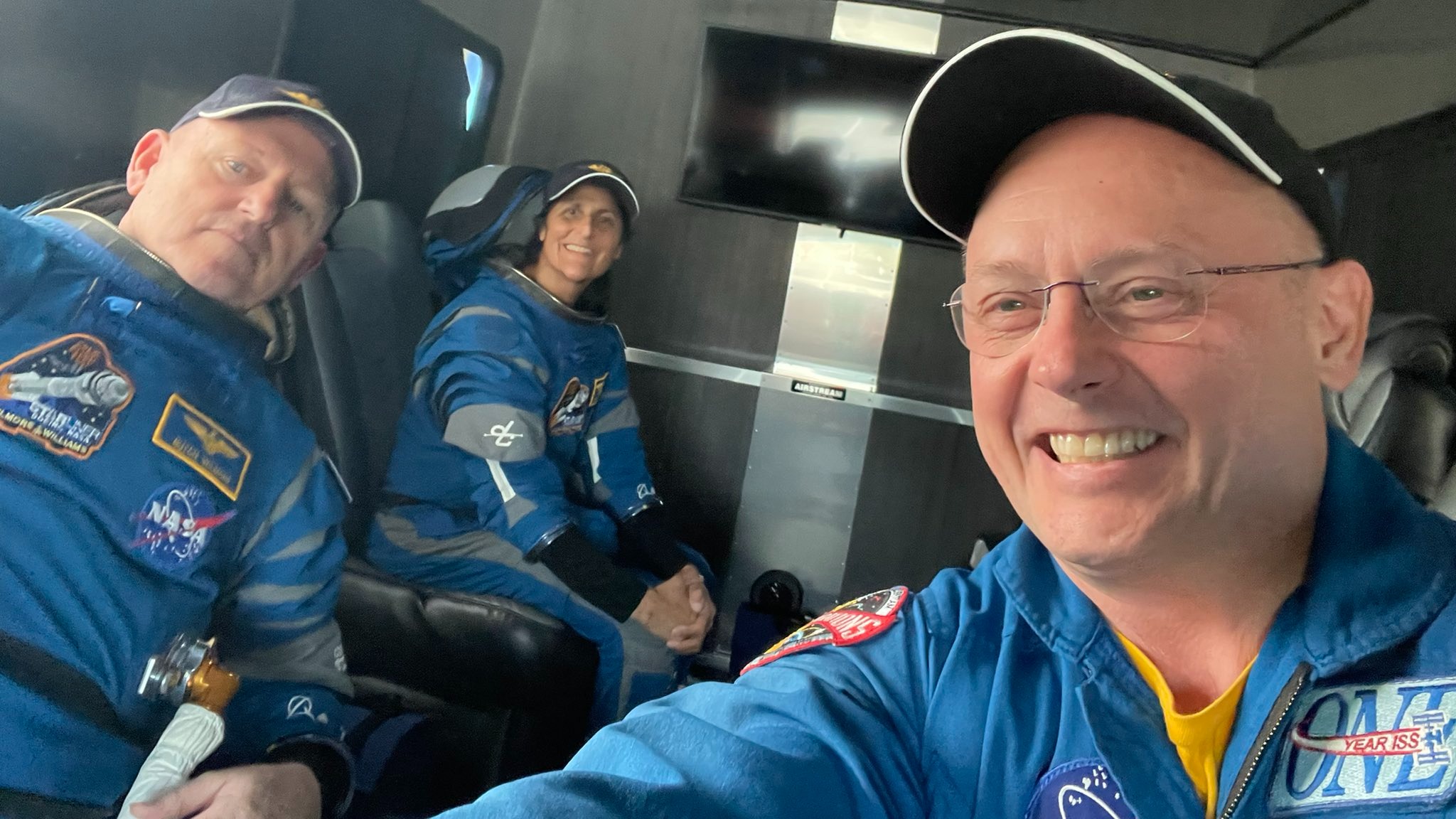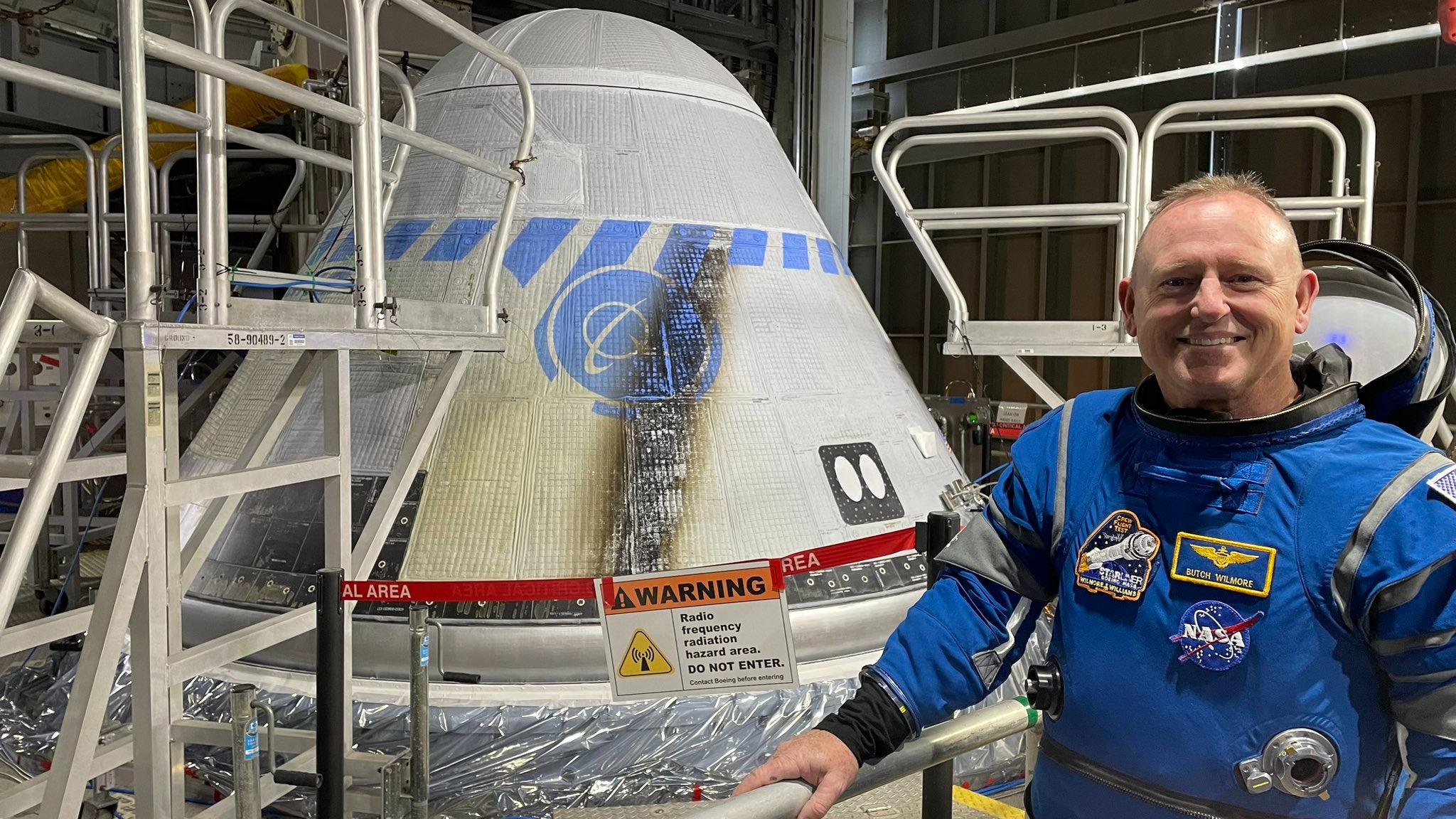Boeing Starliner astronauts conduct dress rehearsal ahead of May 6 launch (photos, video)
The ISS launch will take place near NASA's Kennedy Space Center.

Even in quarantine, the first NASA astronauts to fly aboard Boeing Starliner are still practicing their mission just a week before launch.
NASA astronauts Barry "Butch" Wilmore and pilot Suni Williams finished a big dress rehearsal on Friday (April 26) for their mission aboard Boeing Starliner, known as Crew Flight Test (CFT). Training continues for their scheduled May 6 liftoff to the International Space Station.
With backup astronaut Mike Fincke nearby, the duo did a simulated launch near Orlando, Florida. This included donning spacesuits, driving in a new Airstream Astrovan II to the United Launch Alliance (ULA) Atlas V rocket, and climbing into their spacecraft.
"As Edna Mode said, 'Luck favors the prepared'," Fincke wrote on X, formerly Twitter, quoting an iconic character from Pixar's 2004 movie "The Incredibles" about a superhero family. "We will be ready for launch day!"
Williams and Wilmore also recently performed a video tour of one of their simulators, called the Boeing Mission Trainer, to demonstrate procedures for launch and landing.
The trainer is used for emergency egress training and cargo operations at NASA Johnson Space Center's (JSC) Space Vehicle Mockup Facility (Building 9) in Houston, in essentially a giant warehouse full of mockup spacecraft for various astronaut missions.
Get the Space.com Newsletter
Breaking space news, the latest updates on rocket launches, skywatching events and more!
Williams carefully nudged herself inside the trainer and used handholds on the ceiling to demonstrate how she and Wilmore will squeeze into their seats during launch day. "This is my seat. So I have access to all the displays and controls as well. And we'll be working side by side, together," she said in the video on NASA's Commercial Crew account on X, uploaded Friday.
"It's a pretty comfortable chair. I'm going to take a nap now," Williams joked, closing her eyes while relaxing in the seat.

Both Boeing and SpaceX received lucrative contracts from NASA in 2014 to send commercial crew missions to the ISS, after the space shuttle retired in 2011. In the interim, NASA flew all crews on Russia's Soyuz spacecraft until the first SpaceX test flight in 2020; some Americans still fly on Soyuz for technical and policy reasons, too.
SpaceX's Crew Dragon has flown 11 operational missions with astronauts to the ISS in the last four years, but Starliner met numerous technical snags. Starliner's first uncrewed flight to the ISS in 2019 did not reach its destination due to numerous software glitches. Dozens of fixes later, a second uncrewed ISS flight made it to the orbiting facility in 2022.
CFT was delayed further, however, in 2023 after Boeing and NASA uncovered new issues. Some of the most critical included problems with the main parachutes (the suspension lines carried less load than engineers thought) and wiring (largely covered with flammable P213 tape).
During a media tour at JSC in March that Space.com attended, however, Boeing and NASA officials all emphasized the spacecraft's past issues are behind them. The astronauts have also said the same, although as former U.S. Navy test pilots they also know that debut flight tests with humans will uncover new issues. "When you do test, you expect to find things. We expect to find things," Wilmore said in livestreamed remarks on NASA Television from KSC on April 25.
Related: 1st Boeing Starliner astronauts are ready to launch to the ISS for NASA (exclusive)

The Starliner spacecraft Wilmore and Williams are using has been to space once before, on that 2019 excursion known as Orbital Flight Test. It is now atop Atlas V in ULA's vertical integration facility, not far from Space Launch Complex 41 where it will launch to ISS for an approximately week-long mission.
Fincke, who will command the first operational mission to the ISS no earlier than 2025, showed off the spacecraft's harmless scorch mark from its re-entry five years ago in a picture on X, formerly Twitter. "Caught this picture of Butch [Wilmore] right before starting the crew ingress procedures with #Boeing's most excellent pad team," Fincke wrote.

CFT passed its latest flight readiness review on Thursday (April 25), although as with all launches, safety and weather checks will continue all the way through the time it lifts off.
After launching, Wilmore and Williams will do a number of tests to certify the Starliner spacecraft for operational missions. Procedures include a lot of manual flying in case future crews need to override the automatic systems, testing an emergency power-up using the solar panels, and simulating scenarios where a crew loses communications with Mission Control in Houston, where both Boeing and NASA officials will be working with the CFT astronauts.
If CFT's flight goes to plan, Fincke will command the first operational mission (Starliner-1) in early 2025 at the earliest, for a normal half-year rotation on the ISS. Also on board Starliner-1 will be NASA's Scott Tingle and the Canadian Space Agency's Joshua Kutryk.
The ISS is expected to keep accepting crews until 2030. SpaceX and Boeing will alternate astronaut missions to the orbiting facility to keep it fully staffed, alongside Soyuz, which delivers Russian cosmonaut-led crews. Russia has committed to ISS flights until at least 2028.
Join our Space Forums to keep talking space on the latest missions, night sky and more! And if you have a news tip, correction or comment, let us know at: community@space.com.

Elizabeth Howell (she/her), Ph.D., was a staff writer in the spaceflight channel between 2022 and 2024 specializing in Canadian space news. She was contributing writer for Space.com for 10 years from 2012 to 2024. Elizabeth's reporting includes multiple exclusives with the White House, leading world coverage about a lost-and-found space tomato on the International Space Station, witnessing five human spaceflight launches on two continents, flying parabolic, working inside a spacesuit, and participating in a simulated Mars mission. Her latest book, "Why Am I Taller?" (ECW Press, 2022) is co-written with astronaut Dave Williams.









